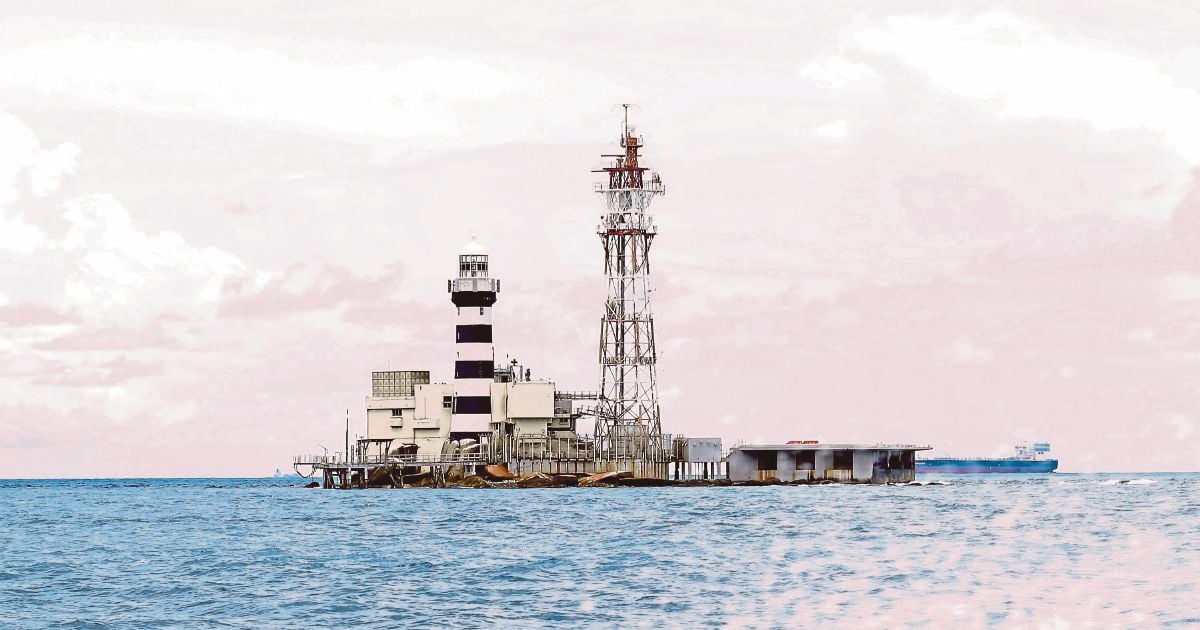THE maritime disputes over Ambalat and Batu Puteh are complex.
Ambalat, located in the resource-rich Sulawesi Sea, is claimed by Malaysia and Indonesia since the early 2000s. The area is believed to contain significant hydrocarbon reserves, and both countries have issued oil exploration licences that have led to diplomatic protests and naval stand-offs.
Prime Minister Datuk Seri Anwar Ibrahim recently emphasised the role of Sabah — which is the Malaysian state closest to the area — in ensuring that any joint development has equitable outcomes for border communities.
Meanwhile, the dispute over Batu Puteh was partially resolved in 2008 when the International Court of Justice (ICJ) awarded sovereignty over it to Singapore.
In the same judgment, the ICJ ruled that Middle Rocks belonged to Malaysia, while sovereignty over South Ledge would rest with the state in whose territorial waters it is located.
As the ICJ did not delimit maritime boundaries, South Ledge’s status is unresolved.
In recent years, bilateral efforts have intensified to resolve outstanding maritime issues. At the 11th Malaysia-Singapore Leaders’ Retreat in January, both governments agreed to begin technical work to delimit maritime boundaries in the Johor Strait, using the 1927 Territorial Waters Agreement as a legal basis.
Singapore’s continued engagement through the Joint Technical Committee reflects its commitment to resolve maritime issues through dialogue and legal frameworks.
These disputes reflect deeper questions of sovereignty, historical memory and control over vital sea lanes. But they also present an opportunity to transform contested maritime zones into shared spaces of cooperation.
Malaysia and Indonesia should consider establishing a joint development authority (JDA) to manage resources and reduce tensions over Ambalat.
Similarly, Malaysia and Singapore could explore cooperative arrangements around Middle Rocks and South Ledge, focusing on maritime safety, environmental stewardship and scientific research.
Such frameworks — already proven in the Malaysia-Thailand JDA in the Gulf of Thailand — would allow all parties to benefit economically while preserving their legal positions.
Importantly, joint development does not require any party to relinquish its claims. Under Article 83 of the United Nations Convention on the Law of the Sea , states are encouraged to reach provisional arrangements pending final delimitation.
Malaysia, Indonesia and Singapore have played pivotal roles in Asean’s evolution and have consistently advocated for peaceful dispute resolution and regional stability.
Their cooperation on Ambalat and Batu Puteh could serve as a model for other maritime disputes in Southeast Asia, including in the South China Sea.
A coordinated initiative involving Malaysia, Indonesia and Singapore — each addressing their respective maritime disputes — could serve as a model for broader governance reforms within Asean, strengthening its commitment to pragmatic diplomacy and peaceful resolution.
Public discourse in all three countries must focus on collaboration.
Parliamentarians, diplomats and civil society leaders should advocate for open dialogue, confidence-building measures and creative legal solutions. The media should frame these disputes as opportunities for partnership.
Ambalat and Batu Puteh should be reimagined as foundations for a shared maritime future — where sovereignty concerns are balanced with economic pragmatism and regional solidarity.
The establishment of JDAs would not only unlock resource potential but also signal that Southeast Asia is capable of resolving disputes through diplomacy and innovation.
During the recent Malaysia-Indonesia Annual Consultation, President Prabowo Subianto reaffirmed Indonesia’s commitment to resolving the Ambalat dispute through peaceful means.
Both leaders agreed to explore joint development initiatives as they recognise that legal processes may take years. This bilateral momentum reflects a pragmatic approach to diplomacy.
On the Batu Puteh front, Singapore has likewise shown its willingness to cooperate.
These parallel bilateral engagements — Malaysia with Indonesia over Ambalat, and Malaysia with Singapore over Batu Puteh — signal a commitment to regional stability, peaceful dispute resolution and collaborative maritime governance.
The writer is a council member of the Malaysian Press Institute
© New Straits Times Press (M) Bhd






